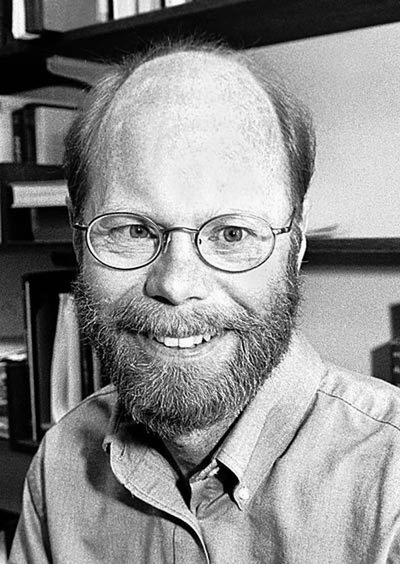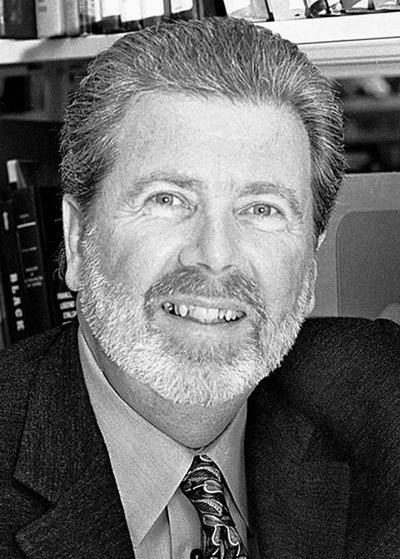October 18, 2001
Legislation seeks to set standards for distance learning courses
By Doug Wadden, Faculty Council on Academic Standards
and Steve Buck, Faculty Council on Educational Outreach
The role of distance learning in undergraduate education at the UW has long been a contentious issue.
Among concerns cited by skeptics are that distance learning is not equivalent to classroom learning; that it denies students benefits of being physically present on campus; that it’s implementation here has not had sufficient oversight to ensure uniform high quality of content and student learning; and that it will be prone to overuse because of the lure of technology, perceived economies, high enrollment capacity, and low capital requirements.
Among arguments by advocates are that distance education can in many cases accomplish the same learning outcomes as classroom education, that it provides students with scheduling flexibility and alternative learning modes, that it is often used by matriculated students in conjunction with on-campus classroom courses, and that it can provide access to education that would otherwise be denied to some segments of our population.
These differences of opinion have led to deepening discrepancies of policy and practice here at the UW. On the one hand, graduate-level certificate and degree programs that are largely or entirely based on distance learning have become mainstays in units such as Nursing and Engineering, among others. At the undergraduate level, increasing numbers of faculty are implementing new distance-learning courses or distance-learning versions of existing classroom courses. This is in addition to about 100 UW undergraduate credit courses offered in distance-learning format through UW Educational Outreach (UWEO).
On the other hand, there are presently no official mechanisms for designating a course as “distance learning” or for reviewing distance-learning versions of courses originally approved as classroom courses. Most students who take distance-learning versions of UW credit courses offered through UWEO (half of whom are matriculated UW students) cannot count those courses in their UW GPA despite meeting the course objectives. Finally, undergraduates cannot take these distance-learning courses in their senior year because of the final-45-credit residence requirement for bachelor’s degrees.
On Oct. 25, the Faculty Senate will consider Class B legislation to regularize the review and implementation of distance-learning courses. The intent is to establish a reasoned common ground, on which both skeptics and advocates can agree, to serve as a foundation for both present and future uses of distance learning in undergraduate education at the UW. The present proposal is the culmination of two years of work on the part of the Faculty Council on Educational Outreach (FCEO) and the Faculty Council on Academic Standards (FCAS) that involved formation of a joint task force; review of policies at peer institutions; a public hearing; and broad input from faculty, students, and administrators.
The legislation would establish a new category of courses, designated with a DL suffix, which are explicitly reviewed and approved as distance learning courses (whether offered directly by academic units or through UWEO). Included are provisions to assure that: (a) DL courses are held to the same level of standards and accomplish equivalent educational goals as classroom-based courses; (b) UW departments have full responsibility for content and staffing of DL courses; (c) All regular academic policies and transcript practices, such as those for incompletes and drops, are followed for DL courses; and (d) Students receive equal academic credit and recognition for approved DL courses.
The legislation would also make the present 45-credit residence requirement for bachelor’s degrees more flexible by permitting it to be spread over the final 60 credits for a degree. This would allow students to take distance-learning courses as part of their senior-year program. Schools and colleges would have further flexibility to waive up to 10 of the 45 residence credits for individual students (as is now common in some units). However, any proposed program that would involve further reduction of the residence requirement would have to obtain approval from the FCAS before implementation.
Any proposed undergraduate distance-learning degree or minor would require review by the regular administration and Faculty Senate channels. Distance-learning degree programs would then be conducted on a provisional basis for 6 years before re-review and consideration for permanent status. At present, there are no distance-learning undergraduate degree programs at the UW. The present proposals ensure that if such programs are suggested, that they will be reviewed and later evaluated with explicit consideration of all issues associated with their mode of delivery.
Finally, the present distance-learning versions of undergraduate credit courses now offered through UWEO will either pass review to become approved DL courses or will be phased out. After the transition period, there will no longer be distance-learning versions of undergraduate UW credit courses that have not been reviewed by the regular course-approval channels and that do not provide full benefits and recognition for students for satisfactory completion. UWEO endorses these changes.
Droves of UW faculty are incorporating Web-based components in their regular courses, thanks in part to the UWired folks and Catalyst tools. The proposed legislation will not stifle that process. Nor will the legislation add new review bureaucracies: distance-learning courses and programs will follow the same review process already in use for regular classroom-based courses.
What the present legislation will do is to set distance learning on a solid footing so that we can move on to explore its best uses here at the UW and turn our attention to some of the larger issues of diversity, access, intellectual property rights, outcome assessment, and faculty compensation that surround the use of new educational technology for both classroom-based and distance-learning courses.
Faculty Senate seeks nominees for vice chair
Nominations for vice chair of the Faculty Senate are being sought. The successful candidate will serve as vice chair during the 2002-2003 academic year and as chair of the Faculty Senate during the 2003-2004 academic year. This position requires a two-year, half-time commitment.
To facilitate the performance of these duties, the Office of the Provost provides the elected representative with one and one-half months summer salary and negotiated released time from other departmental duties. Other arrangements are possible for those on 12-month appointments.
If you are interested or know someone who would be well qualified for the position, please contact: Nominating Committee, c/o Faculty Senate Office, Box 351271, 206-685-2703,  senate@u.washington.edu.
senate@u.washington.edu.
Nominations must be received by Oct. 26. The Nominating Committee expects to recommend candidates to the Senate Executive Committee at its Nov. 19 meeting.




